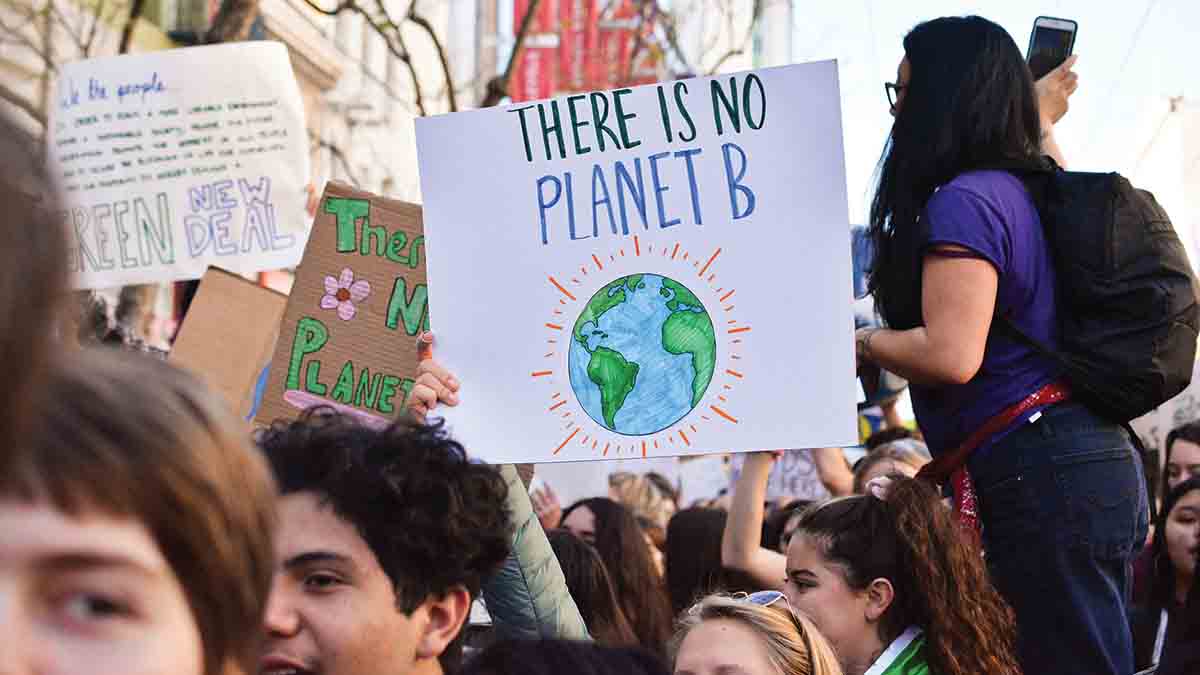AS I SEE IT
 BY MARIANNE HERON
BY MARIANNE HERON
The warnings of climate catastrophe are too urgent to be ignored in UN Secretary General Antio Guterres’ stark ‘moment of truth’ declaration recently. If we miss our limit of no more than 1.5 degrees warming and go scorching on to 2.9 degrees increase by the end of this century, we will create an uninhabitable planet. We are facing apocalypse now.
Several things seem to stop us trying to make a difference to the climate challenge. One is the sheer size of the problem, given that the whole world is involved. Another is the tendency to blame others for the problem, like the Government or the big emission sectors and there is kickback against the guilty feeling that you shouldn’t be doing this, that or the other. Despite all the evidence that climate change is really happening – soaring temperatures and catastrophic fires elsewhere and devastating storms – it still isn’t enough to make us change. Yet, if each of us in a small way take individual action it can make a huge difference.
After Guterres’ warning, I realised that I have made some change – not enough yet but they add up. Transport is responsible for 20% of emissions so I try to use the car less and do several messages on the one outing, shop locally and, if I need to go into the city I park and ride. It would be less environmentally friendly to get rid of my car at my age and get an EV, much as I hate to deprive the motor trade of their profits, even affording a second-hand EV is as likely as winning the Lotto. Maybe test driving an electric bike to see it could make it up the hills round here is the next step. According to one study being car-free would result in 2.4 reduction per tonne of emissions annually per individual; switching to an EV is a 1.95 reduction and switching to public transport 0.98
In the garden, my own patch of the planet, part of it is now meadow – well, a hay meadow – while the lawn is strewn with buttercups, daisies and clover because the grass only gets cut every three weeks or so (more for pollinators and less petrol for the mower).
Sustainable holidays may sound like a contradiction in terms but the home exchange system gives you the opportunity to holiday in someone else’s home while they enjoy staying in yours. The system cuts bills and also avoids the kind of short-term holiday lets which can push locals out of the rental market. And you probably consume less, given the convenience of staying in a fully equipped home. Exchanging is something I enjoyed doing for years and am about to do again.
Energy is another big emissions culprit at about 19%. Apart from wrapping up like a mummy to save on heating, turning heat down and switching off things, the obvious move is to consider solar panels and save on horrific electricity bills which can eat up funds quicker that a piranha would strip a leg of lamb.
According to friendly firm Ecoplex’s ballpark figures fitting them would cost between €9,000 to €12,000, the grant would bring this down to about €6,600 to €9,900 and the saving on electricity would be €700 to €1,000 a year, whereas if I fitted 10-14 panels I could be bill-less, individual saving would be about 1.8 of a tonne of annual emissions.
I am into slow fashion now, trawling charity shops for other people’s fast fashion cast-offs, exchanging with friends and I wouldn’t mind running up the odd number if fabric shops hadn’t vanished as fast as the melting ice cap. It can be hard to resist the retail therapy but the rag trade is responsible for up to 10% of emissions.
During Covid I began GIM – growing it myself – and I feel invested in consuming my own produce and substituting more of it for meat, bearing in mind that agriculture in Ireland is responsible for 33% of emissions. I may not save much money but at least my peas, beans, broccoli and lettuce haven’t clocked up any air miles and they help to keep the slugs and pigeons sustained while a fox deals with food waste on the compost heap.

















